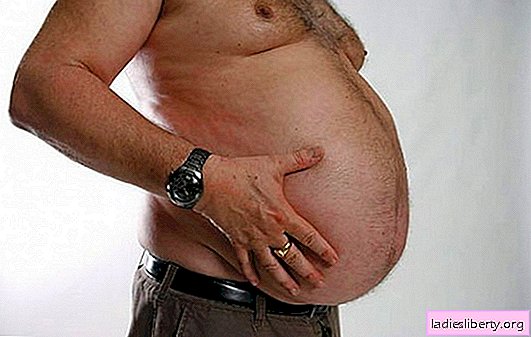
Menopause (synonym: menopause) is not a disease, but a phase of a woman's life, in which the production of sex hormones decreases. On average, menopause begins between the ages of 45 and 55. The age of onset of menopause depends on lifestyle and some risk factors that vary in women. Simple techniques help delay the onset of menopause by 1-7 years.
What risk factors affect the onset of menopause?
Modern women with healthy lifestyles have menopause at a later age. However, some risk factors can reduce the age of menopause and serious concomitant complications.
Cigarette smoking thrice reduces the concentration of female sex hormones in the blood. It has been established that in smokers, the frequency of early menopause is much more common.
For smokers, menopause occurs three years earlier than for non-smokers. Cigarette smoking also increases the risk of illness due to estrogen deficiency - osteoporosis or arterial hypertension.
Lack of movement is a major risk factor for menopause at an early age.
In addition to maintaining the desired body weight, physical activity strengthens muscles, heart, lungs and lowers blood pressure.
It also protects against heart disease, diabetes, cancer, osteoporosis and early menopause.
A sedentary lifestyle is one of the top 10 causes of death and disability in the world.
Which risk factors can be affected and which inevitably lead to early menopause?
A significant number of women have early (up to 40 years) or premature (up to 35 years) menopause. In medicine, risk factors for the early onset of menopause are divided into mutable, immutable, untreatable and treatable.
Immutable:
- familial hyperphosphatemia;
- Ulrich-Turner syndrome.
Modifiable:
- smoking;
- vegetarian diet;
- malnutrition.
Treatable:
- diabetes;
- an operation that disrupts the blood supply to the ovaries;
- coronary heart disease.
Intractable:
- autoimmune ovarian disease;
- viral infections - for example, mumps in childhood.
How to delay menopause?
Since menopause is a natural phase in the life of every woman, it is impossible to completely prevent it. However, a healthy lifestyle often delays the onset of menopause and associated symptoms.
Proper nutrition, exercise, and giving up cigarettes are some of the most effective indirect preventative measures.
It is recommended to limit fat intake by 30% of total calories and enrich the diet with fish products.
Regular physical activity reduces the age of menopause symptoms by 2–3 years. Exercise maintains muscle elasticity, improves coordination and joint mobility, and helps maintain weight. Physical activity also reduces the effects of hypertension and cholesterol.
Women who are sedentary usually have more problems with menopause. In sedentary people, menopause symptoms occur on average 5-10 years earlier.
Alcohol and tobacco increase the risk of developing osteoporosis and cardiovascular diseases, therefore it is recommended to avoid their use.
Sleep disorders are one of the most common complaints in menopause. However, there is an inverse relationship: lack of sleep increases the risk of premature menopause. Women need to sleep at least 8 hours a day.
Constant hormonal fluctuations contribute to the imbalance of glucose in the blood. Timely treatment of diabetes reduces the risk of premature menopause.











